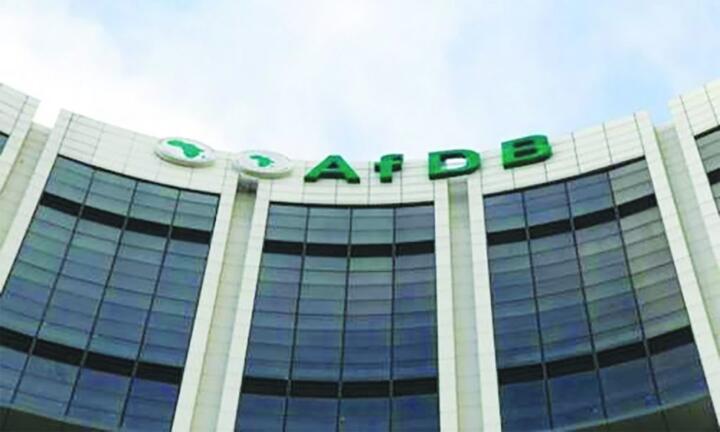The African Development Bank (AfDB) has renewed calls for stronger donor support to accelerate climate resilience initiatives across Africa, stressing that the continent remains disproportionately vulnerable to the impacts of climate change despite contributing the least to global greenhouse gas emissions. The appeal was made against the backdrop of escalating climate-induced challenges that threaten food security, water resources, health systems, and economic growth across the region.
According to the AfDB, Africa faces an annual climate financing gap of about $213 billion, a shortfall that continues to undermine efforts to mitigate and adapt to climate risks. The bank highlighted that while African governments have made commitments under international agreements such as the Paris Accord, many lack the financial capacity to implement large-scale projects that can protect vulnerable populations and critical infrastructure.

Speaking at a recent forum on sustainable development, AfDB President Dr. Akinwumi Adesina emphasized that global solidarity is essential if Africa is to build resilience against climate shocks. He noted that Africa suffers some of the most severe consequences of climate change, including prolonged droughts in the Horn of Africa, recurrent flooding in West Africa, rising sea levels threatening coastal cities, and declining agricultural yields across the continent. “Africa is at the frontline of climate change, yet it receives less than 5 percent of global climate finance. This is grossly inadequate,” Adesina remarked.
The AfDB chief called on donor nations, multilateral institutions, and private investors to scale up contributions toward Africa’s climate priorities, adding that investments in resilience not only protect lives and livelihoods but also create opportunities for green growth. He stressed that stronger donor support will help African countries transition toward renewable energy, develop climate-smart agriculture, and strengthen disaster management systems.
The bank has been implementing a series of initiatives to address climate-related risks, including the Africa Climate Change Fund and the African Adaptation Acceleration Program (AAAP), which was launched in collaboration with the Global Center on Adaptation. These programs aim to mobilize billions of dollars in climate financing, support capacity-building, and foster innovation in climate adaptation projects. AfDB also pledged to devote 40 percent of its annual approvals to climate finance, signaling its commitment to tackling the crisis.
However, despite these interventions, the scale of the challenge remains daunting. Experts note that climate shocks have already caused billions of dollars in economic losses across Africa, displacing millions of people and intensifying poverty. For example, the 2022–2023 drought in the Horn of Africa was described as the worst in four decades, leaving more than 20 million people in urgent need of food assistance. Similarly, devastating floods in Nigeria and South Sudan displaced hundreds of thousands and destroyed vital farmlands.
Analysts argue that without stronger financial and technical support, such events will continue to reverse developmental gains and worsen inequality. They point out that African countries often divert limited resources from healthcare, education, and infrastructure to respond to climate emergencies, thereby slowing economic progress.
The AfDB insists that bridging the financing gap requires a collaborative effort involving traditional donors, innovative financing instruments, and private sector participation. One of the strategies being promoted is the issuance of green bonds and climate-linked investment products to attract global investors. AfDB has also been advocating for the rechanneling of Special Drawing Rights (SDRs) from wealthy nations to African economies, enabling them to finance climate adaptation and energy transition projects more effectively.
In addition to financial support, the bank underscored the importance of technology transfer and knowledge sharing. Advanced economies were urged to assist Africa in accessing cutting-edge solutions for renewable energy, water management, and agricultural productivity. By leveraging innovations such as solar irrigation systems, climate-resilient seeds, and early-warning technologies, African nations can improve preparedness and reduce the impact of climate disasters.
Civil society groups and environmental advocates have echoed AfDB’s call, noting that global climate justice requires that wealthier nations honor their pledges of $100 billion annually in climate finance for developing countries. They argue that Africa, home to over 1.4 billion people, deserves a fair share of these resources to build sustainable and resilient economies.
African leaders have also increasingly voiced concerns about inequities in climate financing, with some warning that the continent risks becoming a victim of policies it had little role in shaping. They emphasize that climate financing should be more accessible, less bureaucratic, and tailored to Africa’s unique circumstances, particularly in rural communities that face the harshest effects of climate change.
For the AfDB, scaling Africa’s resilience efforts is not just a matter of adaptation but also an economic imperative. Transitioning to clean energy, for example, is seen as a pathway to creating millions of green jobs while reducing dependency on fossil fuels. Similarly, investing in climate-smart agriculture has the potential to boost food security, reduce imports, and increase exports of agricultural products.
As global discussions on climate finance continue, the AfDB is positioning itself as a key partner for mobilizing and channeling funds into impactful projects. The bank reiterated its readiness to work with governments, development partners, and the private sector to ensure that Africa not only survives but thrives in the face of climate challenges.
In the months ahead, donor commitments—or the lack thereof—will play a decisive role in determining whether Africa can scale its climate resilience efforts. For now, the AfDB’s renewed appeal highlights the urgency of collective action, underscoring that without substantial support, the continent risks facing deeper humanitarian and economic crises triggered by climate change.
By calling for stronger donor backing, the AfDB is making a case that supporting Africa’s climate resilience is not merely charity, but a strategic investment in global stability, sustainable development, and the fight against climate change.
Support InfoStride News' Credible Journalism: Only credible journalism can guarantee a fair, accountable and transparent society, including democracy and government. It involves a lot of efforts and money. We need your support. Click here to Donate
